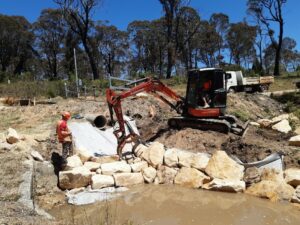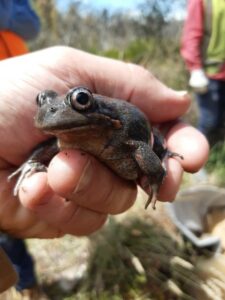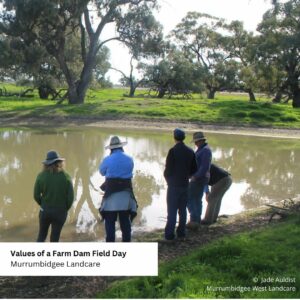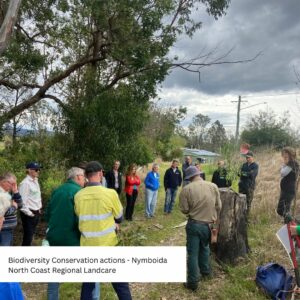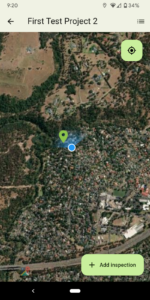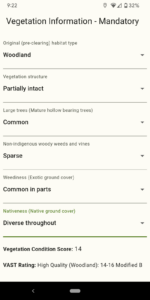Habitat connectivity and high on-farm productivity can often be at odds but one Landcare group in southern NSW is ensuring that landholders guide the way for the ‘habitat hops’ across their landscape, big or small, to ensure that farms remain financially viable and environmentally sustainable.
Although in its early stages, the Burrinjuck to Bango Habitat Hops Project, funded through the Environmental Trust, is connecting different members of the community to connect habitat corridors across their region.
From small ‘blockies’ to larger landholders, the project stretches from Bango Nature Reserve to the Burrinjuck Dam, connecting crucial habitat corridors for threatened flora and fauna species.
Project Coordinator and Bowning-Bookham Landcare member, Ms Elizabeth Goodfellow, says the project’s main focus is about supporting the local ecological communities including the endangered Box Gum Grassy Woodland.
“The Box Gum Grassy Woodland is spread across a large area of NSW but is highly fragmented. With the support of this project, we’ve put in 10,000 tubestock on 30 tree plots in between Burrinjuck and Bango across 12 different properties to help support this ecosystem,” says Elizabeth.
Planted just before and during the recent drought, Elizabeth said the project’s success lay in landholders having an unique plan for each property and a plant survival rate of 80% or more in spite of the drought.
“Each property that worked in the project came up with a plan of where they wanted to do tree planting and what funding and support would help implement the plan. It definitely wasn’t without its challenges, but we tried to make it as easy as possible.
“The benefit of this project is it is a lot more flexible in what you can do on-farm. We can support anything from simply fencing of paddock trees as well as small lots to shelter belts hundreds of metres long, these are are all part of it. Comparatively, a lot of the other projects require big areas to be included in your tree plots. So, by making this a bit more flexible regarding size we’ve been able to make sure we get both that on-farm productivity as well as the environmental benefits.
“The funding, provided by the Environmental Trust, helped move the project from ‘nice thing to do’ to being ‘doable’”.
While investing in lizards, bugs and birds may not seem to have a big imprint in the everyday fabric of our lives and farms, these all play a crucial role in supporting the overall health of our environment and subsequently our individual health and wellbeing.
“Biodiversity is the variety of all living things; the different plants, animals and microorganisms, the genetic information they contain and the ecosystems they form. So, by creating these habitat connections, we are creating a stronger, more resilient bio-diverse environment. This leads to happier and healthier farms. Productivity goes up, water quality improves, beneficial species return, this all leads to greater health in the landscape.
“While in the short term we are counting the numbers of tube stock on the ground, we are also growing a community of people who are interested in looking after the environment together and making sure that we have a healthy landscape that is going to be looking after us well into the future.”
One of the biggest flow-on effects, Elizabeth says, is the increased involvement of individual landholders connecting with local Landcare through the project.
“(The project) has helped a whole bunch of new people into our Landcare group. We gained new people who saw the benefits for their properties in being involved in this project and hopefully they will be involved in other projects into the future as well,” says Elizabeth.
With another 3 years of funding secured to ensure the project continues, the future is looking bright and working towards a time where participants and community members will be able to once more stand on Bookham Hill and see habitat hops stretching across the landscape.

